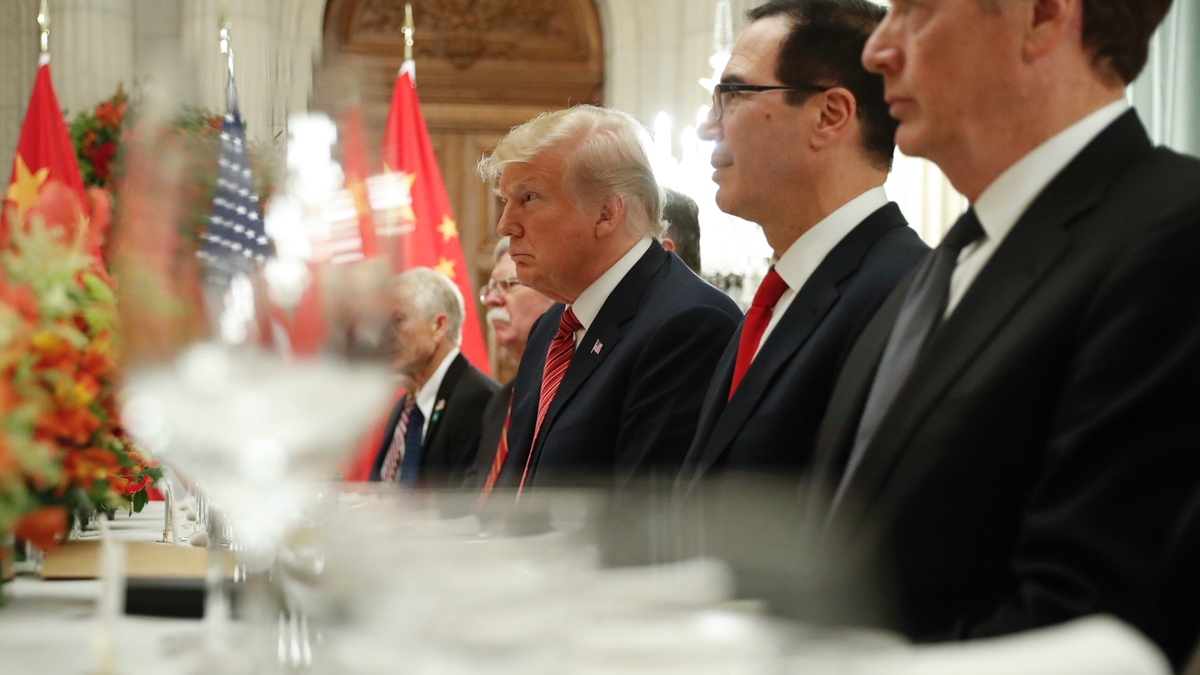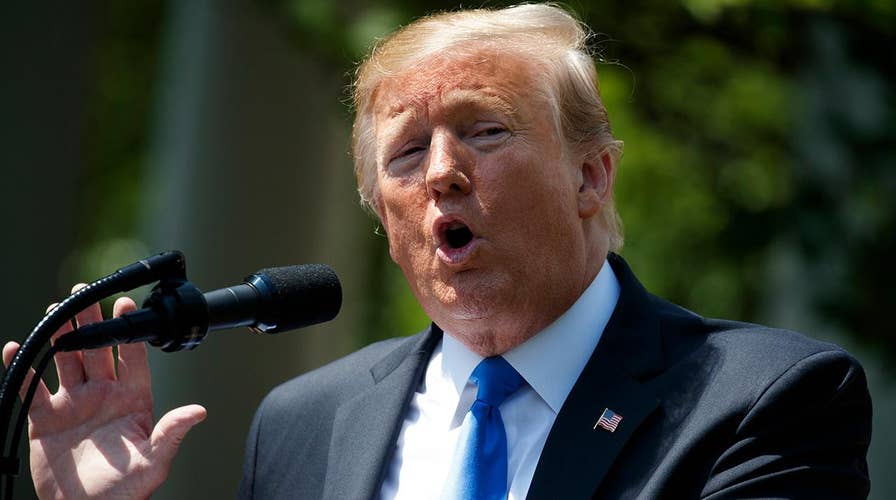Trump to issue 25% tariff hike on Chinese goods in response to slow pace of trade talks
Tariffs on $200 billion of Chinese goods to increase to 25%.
President Trump issued a threat Sunday to hike tariffs on $200 billion worth of Chinese goods to 25 percent at the end of the week, as trade talks with China appeared to be stalling.
He tweeted his frustration over how slowly the negotiations were progressing, writing: "The Trade Deal with China continues, but too slowly, as they attempt to renegotiate. No!"
President Trump, who has called himself a "tariff man", vowed to hike import taxes on $200 billion in Chinese products from 10 percent to 25 percent.

President Trump and Treasury Secretary Steve Mnuchin, second from right, listening to remarks by Chinese President Xi Jinping during a bilateral meeting at the G20 Summit in December 2018. Trump threatened to raise tariffs on $200 billion worth of Chinese goods on Sunday. ((AP Photo/Pablo Martinez Monsivais, File))
TRUMP IMPOSES TARIFFS ON ADDITIONAL $200B OF CHINESE GOODS
His comments came as Vice-Premier Liu He is preparing to travel to Washington this week to resume negotiations, with both sides trying to end a trade war that has affected the global economy. Trump already had pushed back deadlines to raise tariffs twice. Treasury Secretary Steve Mnuchin called the previous April talks between the U.S. and China "productive".
Senate Minority Leader Chuck Schumer, D-N.Y., responded to Trump's tweet on Sunday by telling him to stay strong. "Hang tough on China, President @realDonaldTrump. Don't back down," Schumer wrote.
The two countries have been locked in a high-stakes dispute over China’s push to establish itself as a technological superpower. The U.S. has accused China of resorting to predatory tactics — including cybertheft and forcing foreign companies to hand over technology — in a drive to establish Chinese companies as world leaders in advanced industries such as robotics and electric vehicles.
MEXICO WEIGHS RETALIATORY TARIFF AGAINST U.S. OVER BORDER SLOWDOWNS
Last July, the Trump administration gradually started slapping import taxes on Chinese goods to pressure Beijing into changing its policies. It now has imposed 10 percent tariffs on $200 billion in Chinese imports and 25 percent tariffs on another $50 billion.
The administration repeatedly has suggested that the negotiators were making progress. A month ago, Trump said that the two countries were “rounding the turn” and predicted that “something monumental” would be achieved in the next few weeks.
CLICK HERE TO GET THE FOX NEWS APP
But, last week, Mnuchin seemed to temper expectations, suggesting that Washington was willing to “move on” if it couldn’t get the deal it wanted.
A substantive deal would require China to rethink the way it pursues its economic ambitions, abandoning or scaling back subsidies to its companies, easing up on the pressure for foreign companies to share trade secrets, and giving them more access to the Chinese market.
The Associated Press contributed to this report












































